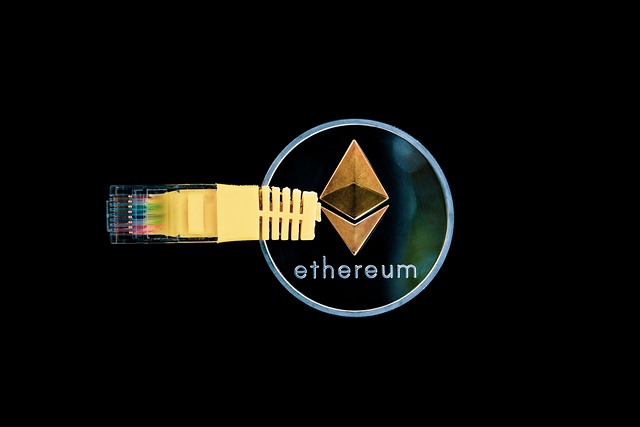In a world grappling with environmental challenges, the transition to a green economy has become more critical than ever before. The demand for sustainable and eco-friendly practices has spurred innovation across industries, and Ethereum, a leading blockchain technology, is at the forefront of this transformation. This article explores how Ethereum is playing a pivotal role in driving the shift towards a greener future, with a particular focus on how Platform is contributing to this transition.
Ethereum’s Commitment to Sustainability
Ethereum, often considered the second most prominent cryptocurrency after Bitcoin, has been making significant strides towards a greener future. Ethereum’s founder, Vitalik Buterin, has been vocal about the network’s commitment to sustainability and its efforts to reduce its carbon footprint. Some key initiatives include:
- Proof of Stake (PoS) Transition: Ethereum is in the process of transitioning from its current energy-intensive Proof of Work (PoW) consensus mechanism to a more energy-efficient Proof of Stake (PoS) system. This shift is set to dramatically decrease Ethereum’s energy consumption, making it a more environmentally friendly blockchain.
- EIP-1559 and Gas Fees: Ethereum Improvement Proposal 1559 (EIP-1559) has revamped the fee structure on the Ethereum network, which not only improves user experience but also reduces gas fees. This, in turn, results in reduced energy consumption and a smaller carbon footprint.
- Layer 2 Solutions: Ethereum’s development community is actively working on Layer 2 scaling solutions, such as Optimistic Rollups and ZK-Rollups, which significantly reduce the energy consumption of the network by moving transactions off the main chain.
The Environmental Challenges of Traditional Finance
The traditional financial system, with its reliance on paper currency, physical offices, and extensive administrative processes, contributes significantly to environmental degradation. Ethereum’s role in this context is to provide an alternative, digital financial ecosystem that minimizes environmental impact.
- Reduced Paper Waste: Ethereum eliminates the need for physical currency, making transactions entirely digital. This not only reduces paper waste but also cuts down on the energy required to produce and transport physical money.
- Remote Work and Decentralization: Ethereum enables decentralized financial services, which promote remote work and reduce the need for physical office spaces. This transition to remote work minimizes the carbon footprint associated with daily commutes and office buildings.
- Efficient Transactions: Ethereum’s blockchain technology ensures faster and more efficient transactions, reducing the energy-intensive intermediaries that are common in traditional finance.
The Role of Trading Platform in Ethereum’s Green Vision
Some trading platforms have emerged as a prominent player in the Ethereum ecosystem, and its contributions to a green economy are noteworthy.
- Promoting Sustainable Investments: Trading platform provides users with access to Ethereum and other cryptocurrencies, fostering an ecosystem of sustainable investments. By making it easy for individuals to invest in Ethereum, the platform is encouraging a shift towards more eco-friendly financial choices.
- Supporting Energy-Efficient Networks: Online trading platform supports Ethereum, which, as mentioned earlier, is actively transitioning to a PoS mechanism and working on Layer 2 solutions. By enabling users to participate in Ethereum transactions, the platfooem indirectly contributes to the development of a greener blockchain network.
- Educating Users on Sustainability: Trading platform offers resources and educational materials to its users, emphasizing the importance of sustainable practices in cryptocurrency and financial investments. This commitment to education is crucial in promoting a green economy.
The Ethical and Economic Benefits of a Green Economy
A green economy, driven in part by Ethereum and trading platforms, offers numerous benefits for both individuals and society as a whole:
- Ethical Investing: Investing in green and sustainable assets aligns with an individual’s ethical and environmental values, allowing them to contribute positively to the planet’s well-being.
- Cost Savings: The adoption of sustainable practices often results in reduced energy consumption, leading to cost savings for individuals and businesses.
- Job Creation: The transition to a green economy generates employment opportunities in various sectors, including renewable energy, sustainable technology, and eco-friendly infrastructure development.
- Resilience Against Climate Change: A green economy is better equipped to withstand the challenges posed by climate change, making it a more secure and resilient economic model.
Conclusion
Ethereum’s commitment to sustainability, through initiatives like the transition to PoS, EIP-1559, and Layer 2 solutions, underscores its role as a pioneer in the transition to a green economy. Making Ethereum accessible to users and promoting eco-friendly investment practices, further contribute to this transformation. The shift towards a green economy not only benefits the environment but also offers economic, ethical, and social advantages that make it a vital endeavor for our collective future.

0 Comments